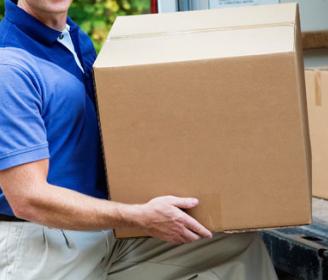How much does it cost to move interstate? Whether you’re relocating to Sydney, Melbourne, Brisbane, or beyond, our detailed breakdown of interstate moving costs from Adelaide helps you plan and budget effectively. Learn what affects pricing, how to save on moving expenses, and get a free quote for your move today.


If you’re relocating to Adelaide from Victoria or anywhere across Australia, it’s crucial to understand South Australia’s quarantine rules before you pack. South Australia protects its horticulture industry with strict biosecurity controls on fruit and vegetables, plants, soil, firewood, honey, and other risk items. Doing this right saves you fines, delays at quarantine bins and roadblocks, and last-minute repacking dramas on move day. Below is a practical, removalist-friendly guide for households moving into SA — with official government resources linked throughout so you can double-check the latest requirements.
South Australia runs a comprehensive quarantine program. Restrictions vary by item type and where you’re travelling from. Always verify your specific situation using the state’s official guidance on SA Quarantine – What you can and can’t bring. This page points to item-by-item rules and the latest seasonal alerts (e.g., fruit fly).
SA maintains zero tolerance around the spread of fruit fly. Travellers often assume “it’s just a snack for the road” — and then lose it at quarantine checkpoints. If you’re carrying fresh produce, read the current advice on what’s allowed and what’s not for entry to SA.
The Riverland Pest Free Area (Renmark, Berri, Barmera, Loxton, Waikerie and surrounds) is even more tightly controlled. Commercial consignments of host produce must meet specific treatment/certification standards to enter the Riverland. For context, see: Importing fruit and vegetables into the Riverland (commercial). While this page targets commercial movements, it demonstrates how strictly the Riverland is protected. As a private household, the simplest rule is: don’t take host fruit and veg into Riverland towns unless you’ve confirmed it’s permitted.
Potted plants, cuttings, turf, potting mix and soil are common in house moves — but they’re also common pest pathways. Many of these items are restricted or need evidence of treatment or origin to enter SA. If you can’t confirm compliance, leave them behind or source replacements in Adelaide after you arrive. At minimum:
Firewood can carry live pests such as borers and bark beetles. If you rely on wood heating, don’t load up the removalist truck with a backyard woodpile from interstate. SA strongly advises against bringing firewood in; source it locally instead and follow retail guidelines. Read: Firewood rules when entering SA.
Even for personal use, honey and associated products may be restricted due to bee disease management. Used beekeeping equipment is particularly sensitive. Before packing any honey, wax, pollen or hive gear, see: Honey and bee product movement into SA.
Most dry pantry goods (tinned/packaged items), sealed cleaning products, electronics, furniture, whitegoods, bedding and clothing can be transported without quarantine issues. Just make sure outdoor items are free from soil, seeds and plant material. Give bikes, prams, play equipment, pet bedding and kennels a thorough clean and let them dry completely.
On key routes into SA you’ll see quarantine disposal bins and, at times, staffed checkpoints. If you discover prohibited fruit, vegetables or plant items close to the border, use the bins — do not hide or dump produce illegally. Keep your inventory list handy; if you’re stopped, being organised speeds everything up.
If you’re moving with commercial quantities or specialised goods (e.g., nursery stock, bulk produce, winemaking or beekeeping equipment), there may be certification and treatment pathways (e.g., ICA/CA arrangements) to move items legitimately. The rules are technical but well-documented. As a starting point, review SA’s Quarantine entry information and the Riverland commercial guidance: Importing fruit and vegetables into the Riverland. When in doubt, contact the Fruit Fly Hotline on 1300 666 010 for item-specific advice.
SA’s quarantine program protects thousands of jobs and a multi-billion-dollar horticulture sector. Non-compliance can lead to seizures of goods, disposal on the spot, and fines. Officers do run random inspections. Treat this like road rules: it’s easier (and cheaper) to get it right first time than to argue it at a checkpoint.
If you’re not sure whether an item is allowed, tell us before you pack and we’ll help you plan a compliant workaround — or suggest Adelaide-based suppliers so you can replace restricted goods after you arrive. Getting this right keeps your move efficient, avoids fines, and protects South Australia’s farms and backyard fruit trees.